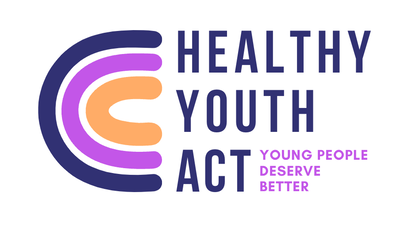
LGBTQ+ Rights

MA was the first state to recognize same-sex marriage, but only because of a court ruling. Our legislature is still moving too slowly on civil rights issues
Massachusetts General Law Chapter 76 section 5 explicitly states “No person shall be excluded from or discriminated against in admission to a public school of any town, or in obtaining the advantages, privileges and courses of study of such public school on account of race, color, sex, gender identity, religion, national origin or sexual orientation.” Yet, even within this state, we must acknowledge that there is an rise of anti-LGBTQ activity of people targeting the civil rights of children, youth, and families, including proposed book bans, protests at drag story hours, and bomb threats against Boston Children's Hospital for providing gender-affirming care. By ignoring these attacks, legislators are sending a poignant message to our youth that – while those in power know of their suffering – there is little care and attention to the necessary work to protect the health, safety, and well-being of queer youth in this state.
MA has been slow to expand protections for LGBTQ+ people
Conversion Therapy
Massachusetts didn't pass a statewide ban on conversion therapy for minors until 2019, despite its proven harmful effects on LGBTQ+ youth, and a supermajority of legislators in support.
Sex Education
Comprehensive, gender-affirming sex education is still not available to all K-12 public school students in the Commonwealth
Mental Health
LGBTQ youth report alarmingly high levels of depression, anxiety, suicidality, and trauma, yet most who wanted mental healthcare did not receive it. According to analysis of the 2021 Massachusetts Youth Risk Behavior Survey (MYRBS), LGBTQ youth in our state endure significant discrepancies in mental health support.
- LGBTQ youth are about three times more likely to skip school in the last 30 days because they felt they would be unsafe at school or on their way to or from school
- LGBTQ youth are about twice as likely to be bullied in school:8.7% of cis-het youth and 18.7% of LGBTQ youth reported being bullied. The gap widens when accounting for electronic bullying, which 25.9% of LGBTQ youth report experiencing, compared to 10.4% of cis-het youth
- LGBTQ youth are about three times more likely to report self-harm, with 49.5% of LGBTQ youth, and 11.3% of cis-het youth reporting hurting themselves
- LGBTQ youth are nearly four times more likely to consider or attempt suicide.
This data demonstrates a mental health crisis among LGBTQ youth that the Commonwealth has yet to act upon.
bills to support LGBTQ+ Rights
Healthy Youth Act
Ensures that a comprehensive sex education curriculum is taught in public schools
Mandates education about consent, healthy relationships, and gender affirmation in sexual education curricula
common questions:
Is sex education really a necessary part of a comprehensive public school education?
Yes. Learning about consent, about the reproductive system, and about contraception and healthy practices is a crucial part of development for young adults, and for LGBTQ+ teens it's essential that gender-affirming care and education begins in public schools. Comprehensive sex education based on science and research has shown to lower STD rates among young people, reduced risks of unwanted pregnancy, and reduced rates nonconsensual sex and sexual assault.
Is comprehensive sex education popular?
Yes. An overwhelming majority of likely Massachusetts voters want sex education to be taught in schools and believe this education should cover a range of topics about safer sex and healthy relationships, according to a 2018 study by EMC Research. Overall, 76 percent of likely Massachusetts voters believe middle school students have a right to receive sex education. This support jumps even higher—to 91 percent—when respondents were asked about high school students’ right to sex education. Not only do likely Massachusetts voters support school-based sex education, they strongly agree that sex education curricula should include a comprehensive range of topics. A total of 93 percent of likely Massachusetts voters believe sex education should teach young people how to care for their sexual health, as well as how to build healthy, respectful relationships and understand consent. This support is strong among voters of all political parties and in every region of the state.
References:
- 1. Cahill, Sean, Geffen, Sophia, Vance, Anise, Wang, Timothy, Barrera, Jacob, “Equality and Equity: Advancing the LGBT community in Massachusetts.” Boston Indicators and The Fenway Institute, May 2018.
- 2. Friedman, Jaclyn, “Do You Know What Your Kids Are Learning In Sex Ed?” WBUR, August 03, 2018
- 3. Snapp, Shannon D., et al. “LGBTQ-Inclusive curricula: why supportive curricula matter.” Sex Education, vol. 15, no. 6, 2015, pp. 580–596.
- 4. Kaiser, Johanna, “Poll: Likely Massachusetts Voters Strongly Support School-Based Sex Education” Planned Parenthood Advocacy Fund of Massachusetts, July 16, 2018
- 5. Report & Recommendations from the MA Commission on LGBTQ Youth, FY24


